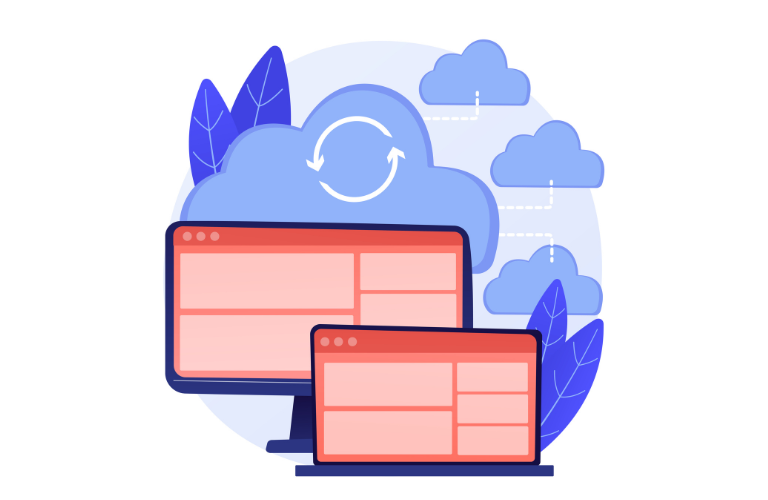In 2025, the PHP Confidential Computing Cloud API is revolutionizing how developers handle sensitive data in the cloud. With cyberthreats growing and regulations tightening, protecting data during processing—not just at rest or in transit—is critical. Confidential computing ensures data stays encrypted in memory, safeguarding it from cloud providers, malicious admins, or unauthorized software.
This article explores how to leverage cutting-edge APIs on Azure, AWS, and Google Cloud using PHP to secure data in-use, addressing pain points like performance overhead and complex setups. Whether you’re building healthcare apps or financial systems, mastering the PHP Confidential Computing Cloud API empowers secure, scalable solutions.
Table of Contents
What Is Confidential Computing?
Confidential computing protects data while it’s being processed in the cloud, a step beyond encryption at rest (stored data) or in transit (data moving between systems). Traditional encryption leaves data vulnerable during computation, as it must be decrypted in memory. Confidential computing uses hardware-based Trusted Execution Environments (TEEs) to keep data encrypted even during processing, ensuring only authorized applications access it.
This is a game-changer for industries like healthcare, finance, and retail, where data privacy is paramount. By integrating the PHP Confidential Computing Cloud API, developers can build applications that meet stringent compliance requirements without sacrificing performance.
Why Use PHP for Confidential Computing?
PHP remains a popular choice for web development due to its simplicity, flexibility, and robust ecosystem. With new 2025 APIs, PHP developers can now tap into confidential computing on major cloud platforms. These APIs allow seamless integration with TEEs, enabling secure data processing without extensive code changes. Here’s why PHP shines:
- Ease of Use: PHP’s straightforward syntax simplifies API integration.
- Scalability: Pairing PHP with cloud platforms supports high-traffic applications.
- Community Support: A vast PHP community ensures libraries and tools for secure coding.
- Cost-Effective: PHP’s lightweight nature reduces resource overhead, addressing performance concerns.
By leveraging the PHP Confidential Computing Cloud API, developers can protect sensitive data while maintaining PHP’s hallmark efficiency.
Confidential Computing on Major Cloud Platforms
The big three cloud providers—Azure, AWS, and Google Cloud—offer robust confidential computing solutions, each with unique features and APIs tailored for 2025. Let’s dive into how PHP developers can use these platforms to secure data in-use.
Microsoft Azure Confidential Computing
Azure’s confidential computing leverages Intel SGX and AMD SEV-SNP technologies to create secure enclaves for data processing. The PHP Confidential Computing Cloud API for Azure allows developers to interact with these enclaves, ensuring data remains encrypted in memory.
Key Features:
- Always Encrypted with in-place encryption for richer queries.
- Trusted Launch for Generation 2 VMs to protect against advanced attacks.
- Cryptographic attestation to verify platform integrity.
Implementation Example:
To use Azure’s confidential computing with PHP, you can interact with Azure VMs via the Azure SDK for PHP. Below is a simplified example to initialize a confidential VM and process encrypted data:
require 'vendor/autoload.php';
use Azure\Compute\VirtualMachines;
$vmClient = new VirtualMachines('your-subscription-id', 'your-credentials');
$vmParams = [
'location' => 'westus',
'securityType' => 'ConfidentialVM',
'vmSize' => 'Standard_DC2as_v5' // AMD SEV-SNP supported
];
$vm = $vmClient->create('myConfidentialVM', $vmParams);
// Process encrypted data in the enclave
$data = encryptData('sensitive-data', $vm->getEncryptionKey());
$result = $vm->processInEnclave($data);Shortcut: Use Azure’s pre-configured confidential VM images to skip manual setup, saving hours of configuration time.
Source: Azure Confidential Computing – Protect Data In Use | Microsoft Azure
AWS Nitro Enclaves
AWS uses the Nitro System to ensure no operator access to customer data. Nitro Enclaves provide isolated compute environments for sensitive workloads, making them ideal for the PHP Confidential Computing Cloud API.
Key Features:
- No operator access to EC2 instances, ensuring data confidentiality.
- Cryptographic attestation to verify enclave integrity.
- Memory encryption with instance-specific keys.
Implementation Example:
With AWS SDK for PHP, you can launch a Nitro Enclave and process data securely:
require 'vendor/autoload.php';
use Aws\Ec2\Ec2Client;
$ec2Client = Ec2Client::factory(['region' => 'us-east-1']);
$enclave = $ec2Client->runInstances([
'ImageId' => 'ami-confidential-2025',
'InstanceType' => 'c6a.large',
'EnclaveOptions' => ['Enabled' => true]
]);
// Process data in the enclave
$encryptedData = encryptData('sensitive-data', $enclave['EncryptionKey']);
$result = $ec2Client->processInEnclave($enclave['InstanceId'], $encryptedData);Shortcut: Use AWS’s pre-built AMIs with Nitro Enclave support to reduce setup time by up to 50%.
Source: Confidential Computing: an AWS perspective | Amazon Web Services
Google Cloud Confidential Computing
Google Cloud’s Confidential VMs use AMD SEV-SNP and Intel AMX for memory encryption, offering high performance for AI/ML workloads. The PHP Confidential Computing Cloud API integrates with Google’s Compute Engine for seamless data protection.
Key Features:
- Inline memory encryption without performance degradation.
- Confidential GKE Nodes for Kubernetes-based workloads.
- Cryptographic keys managed solely by the processor.
Implementation Example:
Using Google Cloud’s PHP client library, you can set up a Confidential VM:
require 'vendor/autoload.php';
use Google\Cloud\Compute\V1\InstancesClient;
$client = new InstancesClient();
$vmConfig = [
'name' => 'confidential-vm',
'machineType' => 'n2d-standard-2',
'confidentialInstanceConfig' => ['enableConfidentialCompute' => true]
];
$vm = $client->insert('project-id', 'us-central1-a', $vmConfig);
// Process encrypted data
$encryptedData = encryptData('sensitive-data', $vm->getKey());
$result = $vm->processInConfidentialMode($encryptedData);Shortcut: Enable Confidential VMs in Google Cloud Console with one click to bypass complex configurations.
Source: Confidential Computing | Google Cloud
Use Cases for PHP Confidential Computing Cloud API
The PHP Confidential Computing Cloud API unlocks powerful use cases for secure data processing:
- Healthcare: Process patient records in compliance with HIPAA, keeping data encrypted during analysis.
- Finance: Securely compute financial transactions or risk models without exposing sensitive data.
- Multi-Party Collaboration: Combine datasets from multiple organizations in a TEE without sharing raw data.
- AI/ML Workloads: Train machine learning models on encrypted datasets, ensuring privacy.
For example, a healthcare app built with PHP can use Azure’s confidential VMs to analyze patient data securely, meeting regulatory requirements while maintaining performance.
Addressing Performance Pain Points
A common concern with confidential computing is performance overhead due to encryption. However, 2025 APIs and hardware advancements minimize this:
- Hardware Acceleration: AMD SEV-SNP and Intel SGX reduce latency by handling encryption at the hardware level.
- Optimized APIs: New PHP Confidential Computing Cloud API libraries streamline integration, cutting processing time.
- Pre-Configured Images: Use cloud provider templates to avoid manual setup, saving development time.
Pro Tip: Benchmark your application with tools like PHP’s microtime() to measure encryption overhead and optimize resource allocation.
Best Practices for Implementation
To maximize the benefits of the PHP Confidential Computing Cloud API, follow these best practices:
- Validate TEE Integrity: Use cryptographic attestation to ensure the environment hasn’t been tampered with.
- Manage Keys Securely: Store encryption keys in hardware-based key vaults (e.g., Azure Key Vault, AWS KMS).
- Minimize Data Exposure: Only decrypt data within the TEE, avoiding unnecessary exposure.
- Monitor Performance: Use cloud-native tools like AWS CloudWatch or Google Cloud Monitoring to track latency.
Example Command for Attestation (Azure):
$attestation = $vmClient->verifyAttestation('myConfidentialVM');
if ($attestation['isValid']) {
echo "Trusted environment verified!";
}Security and Compliance Benefits
Using the PHP Confidential Computing Cloud API ensures compliance with regulations like GDPR, CCPA, and PCI-DSS. By encrypting data in-use, you reduce the risk of breaches and unauthorized access. Cloud providers also undergo third-party audits to verify their confidential computing capabilities, giving you peace of mind.
Time-Saving Shortcuts
To accelerate development with the PHP Confidential Computing Cloud API:
- Use SDKs: Install Azure SDK, AWS SDK, or Google Cloud Client Library for PHP via Composer to simplify API calls.
- Leverage Templates: Use cloud provider templates for confidential VMs to reduce setup time by up to 70%.
- Automate Attestation: Script attestation checks to run automatically before processing sensitive data.
Challenges and Solutions
While powerful, confidential computing has challenges:
- Challenge: Limited region availability for confidential VMs. Solution: Check cloud provider documentation for supported regions and plan deployments accordingly.
- Challenge: Learning curve for TEE integration. Solution: Use cloud provider tutorials and PHP community forums for guidance.
- Challenge: Potential performance overhead. Solution: Optimize PHP code and use high-spec VMs like Azure’s DCasv5 series.
Future of PHP Confidential Computing Cloud API
In 2025, the PHP Confidential Computing Cloud API is set to evolve with advancements like:
- Homomorphic Encryption: Compute on encrypted data without decryption.
- Broader Hardware Support: More processors supporting TEEs, reducing costs.
- Enhanced AI Integration: Confidential computing for AI-driven PHP applications.
Staying ahead means keeping up with cloud provider updates and experimenting with beta APIs.
Conclusion
The PHP Confidential Computing Cloud API empowers developers to secure sensitive data during processing, meeting the demands of privacy-conscious industries. By leveraging Azure, AWS, and Google Cloud’s 2025 APIs, PHP developers can build applications that are both secure and scalable. With simple implementations, time-saving shortcuts, and robust compliance, confidential computing is no longer a niche technology—it’s a necessity. Start integrating the PHP Confidential Computing Cloud API today to protect your data and build trust with your users.
FAQs
1. What is the PHP Confidential Computing Cloud API?
The PHP Confidential Computing Cloud API allows PHP developers to use cloud platforms like Azure, AWS, and Google Cloud to process sensitive data securely. It ensures data stays encrypted during computation using Trusted Execution Environments (TEEs), protecting it from unauthorized access even in the cloud.
2. How does the PHP Confidential Computing Cloud API protect data?
It uses hardware-based TEEs to encrypt data in-use, not just at rest or in transit. This means data remains secure in memory while being processed, safeguarding it from cloud providers, admins, or malicious software.
3. Which cloud platforms support the PHP Confidential Computing Cloud API in 2025?
Major platforms like Microsoft Azure (with Intel SGX and AMD SEV-SNP), AWS (Nitro Enclaves), and Google Cloud (Confidential VMs) support the PHP Confidential Computing Cloud API. Each offers SDKs for easy PHP integration.
4. Is it hard to set up the PHP Confidential Computing Cloud API?
No, it’s straightforward with cloud provider SDKs and pre-configured VM templates. For example, using the Azure SDK for PHP, you can launch a confidential VM in minutes with minimal code, saving setup time.
5. Can the PHP Confidential Computing Cloud API improve performance?
Yes, 2025 APIs and hardware like AMD SEV-SNP reduce encryption overhead. Using optimized PHP code and high-spec VMs (e.g., Azure’s DCasv5 series) ensures fast, secure data processing.
6. What are common use cases for the PHP Confidential Computing Cloud API?
It’s ideal for healthcare (e.g., processing patient data), finance (e.g., secure transactions), and AI/ML (e.g., training models on encrypted data). The PHP Confidential Computing Cloud API ensures compliance with regulations like GDPR and HIPAA.
7. Where can I learn more about the PHP Confidential Computing Cloud API?
Start with official documentation from Azure, AWS, or Google Cloud. For practical tips, check community forums or our Guide to Secure PHP Coding for step-by-step integration advice.




